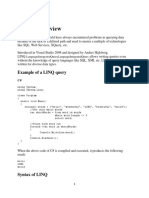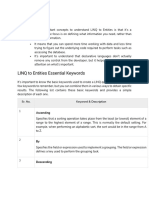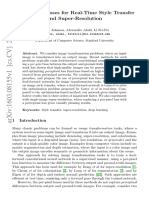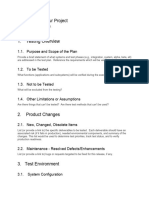0% found this document useful (0 votes)
161 views22 pagesLambda and LINQ in C#
This document provides an introduction to Lambda expressions and LINQ in C#. It discusses how Lambda expressions allow defining anonymous functions and how LINQ adds querying capabilities to .NET through methods like Where, Select, OrderBy, GroupBy, and joins. Examples are given of common Lambda expressions and LINQ queries involving filtering, projecting, sorting, grouping, and joining data.
Uploaded by
zaffar khanCopyright
© © All Rights Reserved
We take content rights seriously. If you suspect this is your content, claim it here.
Available Formats
Download as PPT, PDF, TXT or read online on Scribd
0% found this document useful (0 votes)
161 views22 pagesLambda and LINQ in C#
This document provides an introduction to Lambda expressions and LINQ in C#. It discusses how Lambda expressions allow defining anonymous functions and how LINQ adds querying capabilities to .NET through methods like Where, Select, OrderBy, GroupBy, and joins. Examples are given of common Lambda expressions and LINQ queries involving filtering, projecting, sorting, grouping, and joining data.
Uploaded by
zaffar khanCopyright
© © All Rights Reserved
We take content rights seriously. If you suspect this is your content, claim it here.
Available Formats
Download as PPT, PDF, TXT or read online on Scribd
/ 22


























































































